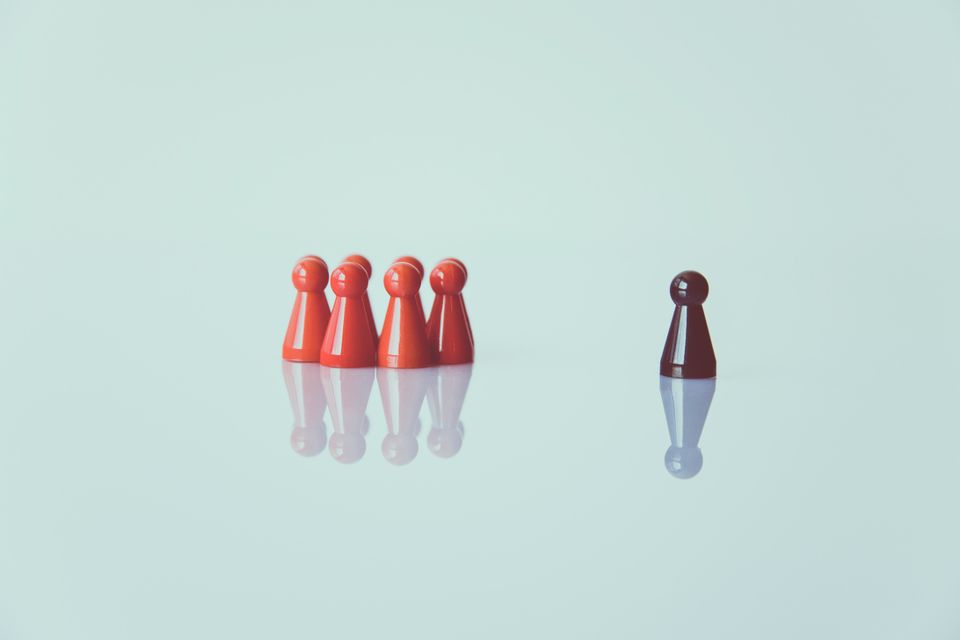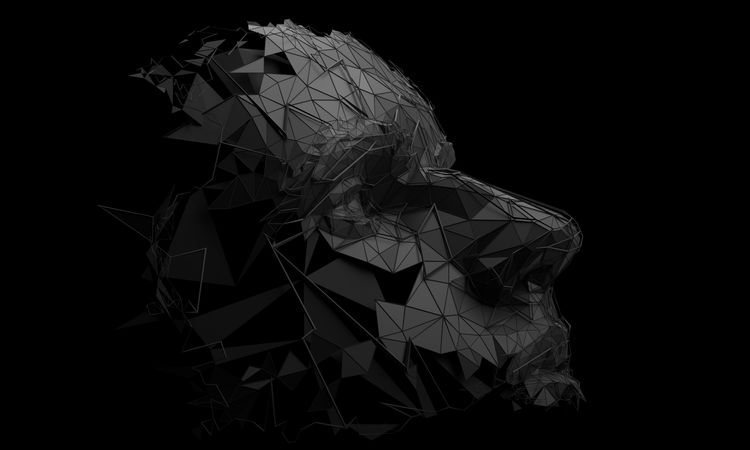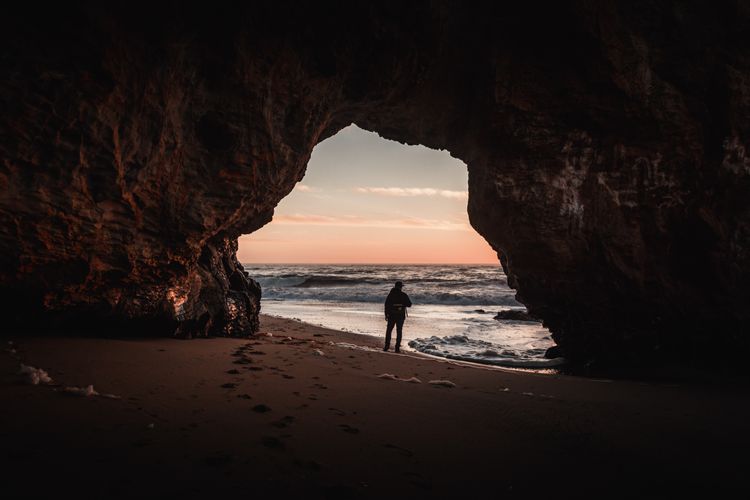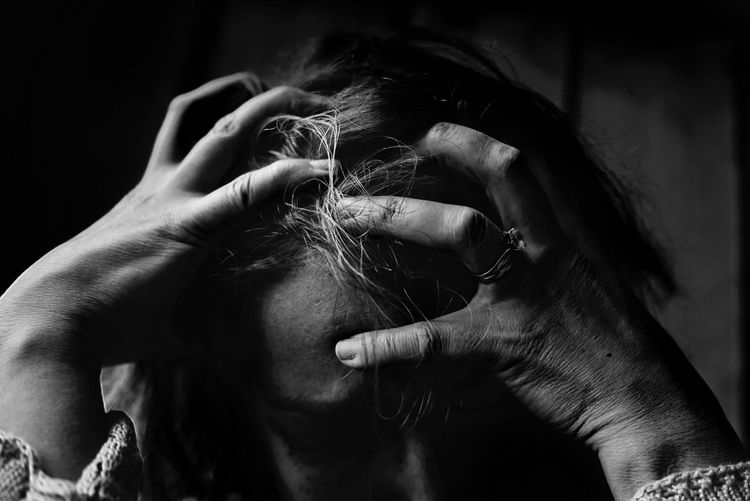Othering Is Creeping Into the Western World, and It Must Be Addressed

They. Them. The roots of our discontent. The one’s responsible for our misfortune. They are not like us. We are not the same.
This is “Othering.” It is drawing a hard line between an in-group and out-group within a country — with the outgroups often being scapegoated for a country’s problems.
When you can other someone, you can justify doing things to them. This has happened before.
And it’s happening again.
What Othering Looks Like
According to the Canadian Museum of Human Rights:
Othering involves zeroing in on a difference and using that difference to dismantle a sense of similarity or connectedness between people. Othering sets the stage for discrimination or persecution by reducing empathy and preventing genuine dialogue.
Othering can be justified by emphasizing any noticeable difference between the two groups. The most common reasons for othering throughout history have been race, gender, religion, and the like.
Humans have a natural tendency to categorize others into groups. Taken to its extreme, people will dehumanize what they don’t understand.
A prime example of othering, and one I’m sure you’re familiar with, is the persecution of the German Jewish population in the 1930s.
The first concrete act of othering was requiring all Jewish people over the age of six to wear a yellow Star of David patch in public. This was done to identify, isolate, and humiliate the out-group.
Believe it or not, a fair amount of Germans showed sympathy for the Jewish people who were forced to do this. But, the Reich’s Ministry of Propaganda and Public Enlightenment handed out pamphlets discouraging this empathy and instructing the populace on how Jews should be treated.
Othering moves gradually from unfamiliarity and “not getting it” to an active separation campaign, and then on to something much worse.
Othering Today
Othering exists in any form of widespread conflict or oppression. But I’m going to highlight a particular form that seems to be emerging all around us.
This is othering based on political affiliation. Red and blue. Conservative and liberal. However you want to spin it. Bear with me here.
Let’s look at both camps for a political topic. Take COVID vaccination. What does each perspective say about “the others”?
Camp # 1 (Vaccinated): The others are plague rats who are directly responsible for many deaths.
Camp # 2 (Unvaccinated): The others are terrified fools following a manipulative government agenda.
Media pumps it through our brains that the others are among us, and that even a hint of affiliation with one side implies that you hold a thousand insane beliefs.
You think differently. You are not like me. You are not a person. You are what I’ve been trained to hate.
Memeing
Have you seen this meme?:

This is the NPC meme, or “Non-player character.” That’s the gray guy.
NPCs are people in video games who give you quests and repeat only what they’ve been programmed to say. The NPC meme is meant to represent a person who cannot be reasoned with, and who doesn’t seem to have a mind of their own.
It is often used to portray the impossible conversations you have with people you disagree with, especially when it comes to politics.
I think we’ve all had moments like this. When we’re looking at someone and marveling at how strange their beliefs are, and how they only seem to be regurgitating something someone else said. Believe me, I get the joke.
But, this meme is the essence of othering.
It communicates that anyone you disagree with is so far gone, and thinks so differently than you do, that they can barely be called human.
It’s true that there are people with cult-like devotions to their beliefs. I’m not excusing anyone’s disgusting behavior or ignorance.
But those are the most extreme cases. It’s when we stop seeing a person's character and only see their beliefs, that we become lost.
You don’t have to like them, but you can’t not call them human.
Where It All Leads
The question is, how does this end?
How does a society that’s divided itself between the right and the wrong, that’s stopped seeing people as individuals but as soldiers for a cause, turn out?
Well, how do you think?
Here’s a few things that could happen:
- Echo chambering — Othering reduces trust in different groups. Lack of trust in the outside world is the lifeblood of an echo chamber.
- Fear and paranoia — Thinking the people around you could be one of them puts your life on the edge. Your mind closes to new ideas and perspectives. You don’t want to associate with the “crazies” after all.
- Death on a massive scale — Othering starts with a seed. It has to start small. Little acts of separation that are claimed to be for the greater good lead to more extreme measures. Eventually, our moral landscape becomes unrecognizable.
An example of what could be called othering, albeit an insignificant one, has been happening recently.
It’s the odd decision to bar the unvaccinated from participating in parts of society. A bar or restaurant doesn’t want its patrons getting sick, so if everyone in the building is vaccinated, then no one has a reason to worry.
But…if the vaccine is effective, and boosters are effective, then what would a vaccinated person have to fear from an unvaccinated? I’ve heard people make an argument for breakthrough cases, but those are exceedingly rare, at least before Omicron.
I’m not saying this is an oppressed minority here, but why do this? Why isolate? It doesn’t seem to have any purpose other than to shame.
Where We Need to Arrive
I overheard someone complaining about a vaccine perspective they didn’t like, and they said, “Hopefully Omicron gets him, and the world will be a better place.”
You’re rooting for the virus now? No, kid. That’s the road to hell. It would say it’s paved with good intentions, but your intentions don’t sound so good.
Goodness is something like giving people a chance. And listening to the people you don’t “get.” According to Otheringandbelonging.org:
Widening the circle of human concern involves “humanizing the other,” where negative representations and stereotypes are challenged and rejected. It is a process by which the most marginalized outgroups are brought into the center of our concern through higher order love.
How often do you see someone have empathy and an open ear toward someone they don’t agree with?
I’m no sage, and I’m not sure how to get there, but we need to arrive at some kind of unified understanding of the boat we’re all in. This is all I can recommend.
We need:
- To see character before belief.
- To not judge too hastily.
- To engage in honest dialogue and healthy debate.
- To try to listen to and learn from people.
- To not just do what you’re told. If you have a criticism, get it out in the open.
History should remind us that othering, and anticipating ugliness in people, could be more dangerous than anything.
People change. People evolve. People are more than what they believe in at any one moment. You’re probably more alike than you think.



